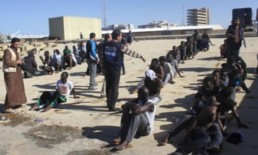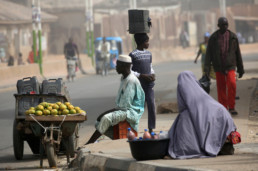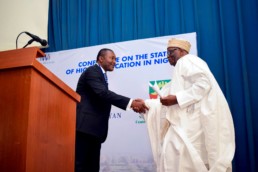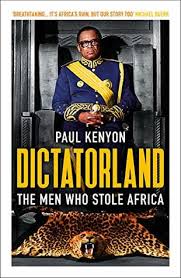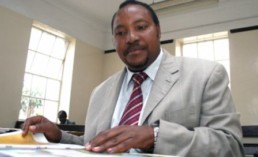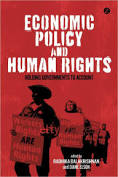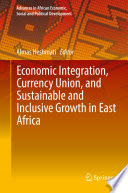Libya: A stain on Africa as it revives the sale of black Africans
European governments are knowingly complicit in the torture and abuse of tens of thousands of refugees and migrants detained by Libyan immigration authorities in appalling conditions in Libya, said Amnesty International in a report published today in the wake of global outrage over the sale of migrants in Libya. ‘Libya’s dark web of collusion’ details how European governments are actively supporting a sophisticated system of abuse and exploitation of refugees and migrants by the Libyan Coast Guard, detention authorities and smugglers in order to prevent people from crossing the Mediterranean.
“Hundreds of thousands of refugees and migrants trapped in Libya are at the mercy of Libyan authorities, militias, armed groups and smugglers often working seamlessly together for financial gain. Tens of thousands are kept indefinitely in overcrowded detention centres where they are subjected to systematic abuse,” said John Dalhuisen, Amnesty International’s Europe Director. “European governments have not just been fully aware of these abuses; by actively supporting the Libyan authorities in stopping sea crossings and containing people in Libya, they are complicit in these abuses.”
A policy of containment
Since late 2016, EU Member States - particularly Italy - have implemented a series of measures aimed at closing off the migratory route through Libya and across the central Mediterranean, with little care for the consequences for those trapped within Libya’s lawless borders. Their cooperation with Libyan actors has taken a three-pronged approach.
Firstly, they have committed to providing technical support and assistance to the Libyan Department for Combatting Illegal Migration (DCIM), which runs the detention centres where refugees and migrants are arbitrarily and indefinitely held and routinely exposed to serious human rights violations including torture. Secondly, they have enabled the Libyan Coast Guard to intercept people at sea, by providing them with training, equipment, including boats, and technical and other assistance. Thirdly, they have struck deals with Libyan local authorities and the leaders of tribes and armed groups – to encourage them to stop the smuggling of people and to increase border controls in the south of the country.
Detention, extortion and exploitation of migrants
The criminalization of irregular entry under Libyan law, coupled with the absence of any legislation or practical infrastructure for the protection of asylum seekers and victims of trafficking, has resulted in mass, arbitrary and indefinite detention becoming the primary migration management system in the country.
Refugees and migrants intercepted by the Libyan Coast Guard are sent to DCIM detention centres where they endure horrific treatment. Up to 20,000 people currently remain contained in these overcrowded, unsanitary detention centres. Migrants and refugees interviewed by Amnesty International described abuse they had been subjected to or they had witnessed, including arbitrary detention, torture, forced labour, extortion, and unlawful killings, at the hands of the authorities, traffickers, armed groups and militias alike.
Dozens of migrants and refugees interviewed described the soul-destroying cycle of exploitation to which collusion between guards, smugglers and the Libyan Coast Guard consigns them. Guards at the detention centres torture them to extort money. If they are able to pay they are released. They can also be passed onto smugglers who can secure their departure from Libya in cooperation with the Libyan Coast Guard. Agreements between the Libyan Coast Guard and smugglers are signalled by markings on boats that allow the boats to pass through Libyan waters without interception, and the Coast Guard has also been known to escort boats out to international waters.
A policy of containment
Since late 2016, EU Member States - particularly Italy - have implemented a series of measures aimed at closing off the migratory route through Libya and across the central Mediterranean, with little care for the consequences for those trapped within Libya’s lawless borders. Their cooperation with Libyan actors has taken a three-pronged approach.
Firstly, they have committed to providing technical support and assistance to the Libyan Department for Combatting Illegal Migration (DCIM), which runs the detention centres where refugees and migrants are arbitrarily and indefinitely held and routinely exposed to serious human rights violations including torture. Secondly, they have enabled the Libyan Coast Guard to intercept people at sea, by providing them with training, equipment, including boats, and technical and other assistance.Thirdly, they have struck deals with Libyan local authorities and the leaders of tribes and armed groups – to encourage them to stop the smuggling of people and to increase border controls in the south of the country.
Detention, extortion and exploitation of migrants
The criminalization of irregular entry under Libyan law, coupled with the absence of any legislation or practical infrastructure for the protection of asylum seekers and victims of trafficking, has resulted in mass, arbitrary and indefinite detention becoming the primary migration management system in the country.
Refugees and migrants intercepted by the Libyan Coast Guard are sent to DCIM detention centres where they endure horrific treatment. Up to 20,000 people currently remain contained in these overcrowded, unsanitary detention centres. Migrants and refugees interviewed by Amnesty International described abuse they had been subjected to or they had witnessed, including arbitrary detention, torture, forced labour, extortion, and unlawful killings, at the hands of the authorities, traffickers, armed groups and militias alike.
Dozens of migrants and refugees interviewed described the soul-destroying cycle of exploitation to which collusion between guards, smugglers and the Libyan Coast Guard consigns them. Guards at the detention centres torture them to extort money. If they are able to pay they are released. They can also be passed onto smugglers who can secure their departure from Libya in cooperation with the Libyan Coast Guard. Agreements between the Libyan Coast Guard and smugglers are signalled by markings on boats that allow the boats to pass through Libyan waters without interception, and the Coast Guard has also been known to escort boats out to international waters.
While it is unclear how many members of the Libyan Coast Guard collaborate with smugglers, it is clear that, during 2016 and 2017, the Libyan Coast Guard’s increased capacity, due to support from EU member states, has led to an increasing number of operations where migrants are taken back to Libya. So far in 2017, 19,452 people have been intercepted by the Libyan Coast Guard, taken back to Libya and immediately transferred to detention centres where torture is rife.
One man from the Gambia who was detained for three months told Amnesty International how he was starved and beaten in a detention centre: “They beat me with a rubber hose, because they want money to release me. They call the family while beating [you] so the family send money.” After his family paid the ransom he was taken to Tripoli by an assigned driver who demanded further payment. “I had to stay with him until I pay the money back, otherwise he will sell me.”
“One immediate way to improve the fate of refugees and asylum seekers in DCIM centres would be for the Libyan authorities to formally recognize UNHCR’s mandate, sign the Refugee Convention and adopt an asylum law. The automatic detention of migrants must also stop as that is when the worst abuses occur,” said John Dalhuisen.
Libyan coastguard endangering lives, intimidating NGOs
“European governments must rethink their cooperation with Libya on migration and enable people to get to Europe through legal pathways, including by resettling tens of thousands of refugees. They must insist that the Libyan authorities end the policy and practice of arbitrary arrests and detention of refugees and migrants, immediately release all foreign nationals held in the detention centres, and allow the UNHCR to operate unhindered.”
BACKGROUND
The Ras Jadir was donated by Italy to the Libyan authorities in two ceremonies: the first in the port of Gaeta (Italy) on 21 April 2017, and the second in the port of Abu Sittah (Libya) on 15 May 2017. The boat is clearly portrayed in videos of the ceremonies, in the presence of the Italian Minister of Interior Marco Minniti.
At the end of September 2017, IOM had identified 416,556 migrants in Libya, of which more than 60% are from sub-Saharan Africa, 32% from other North African countries, and around 7% from Asia and the Middle East. UNHCR figures show that 44,306 people in Libya were registered as refugees or asylum-seekers as of 1 December 2017. The actual number is undoubtedly much higher.
**A report by Amnesty International.
Tracking the Spread of COVID-19 in Nigeria’s Largest Northern City
John Campbell*.
A recent, so far unexplained, spike in deaths in Kano, Nigeria, highlights the difficulty of tracking the spread of coronavirus, especially in certain large African urban areas. Kano is regarded as Nigeria's second largest urban agglomeration, after Lagos. It is the capital of Kano state, the first or second largest in population. The population estimate of 4 million for the city is almost certainly much too low. The city sprawls over some fifty square miles and is highly decentralized in governance, with forty-four local government areas. Large number of people have fled to the city to escape the breakdown of security in the north as well as drought and other perennial hazards. Overcrowding is ubiquitous, and most people are very poor. The population is predominately Muslim, though with a small Christian minority, and hosts the emir of Kano, one of the most senior traditional rulers in the north.
Even in normal times, a large number of Kano residents die outside of hospitals. The dead are not deposited in morgues, and the cause of death is nowhere recorded. When they can, residents return to their home villages to die or they die in the urban households where they have been living. Following Muslim practice, the dead are buried immediately. Hence statistics are of little use in charting rates or causation of death. It was gravediggers that called attention to the recent spike in deaths.
City residents are fearful that the spike in deaths is directly related to COVID-19. Apparently, so is President Muhammadu Buhari, who has extended for another two weeks in Kano city a lockdown even as he is loosening those restrictions elsewhere. As of April 28, according to the Nigerian Center for Disease Control, Kano state had 115 reported COVID-19 cases. State investigators are looking into the spike, but the definitive answers that might be provided by tests may be hard to come by. Investigators are conducting “verbal autopsies,” interviewing relatives of the deceased about the nature of the deaths, partly because testing capacity is low. Nigeria had conducted just under 13,000 tests as of April 28. One of the Kano testing facilities was contaminated and thus closed for cleaning, further delaying results. Doctors who observe patients with COVID-19 symptoms often have no tests on hand to verify if the patients have the disease.
Some local officials and observers see the death spike as the result of multiple causes. For example, most private hospitals in Kano have been closed to prevent the spread of COVID-19. Public hospitals remain open, but they are geared now to responding to COVID-19. Under normal circumstances, for those that can afford it, private hospitals provide care for many of those with preexisting conditions. Others receive no medical treatment at all. Even for those that are relatively well-off, with the hospital closures, those afflicted with diabetes, cancer, or heart disease, for example, go untreated. Those with preexisting conditions and the poor are especially vulnerable.
In the best of times, Kano's disease burden is heavy, and life spans are short. The city hosts myriad lethal diseases, including malaria, meningitis, and Lassa fever. Clean water is difficult for the poor to access, and a high percentage of the population is malnourished. Hence, whatever role COVID-19 has played in Kano's apparent death spike is difficult to determine. The same will likely be the case in cities such as Lagos or Kinshasa, but not necessarily elsewhere. For example, morgues are in greater use in Abidjan and Johannesburg, facilitating the capture of cause of death data. In Kano, the extent of the disease is simply unknown at this time.
* John Campbell is Ralph Bunche Senior Fellow for Africa Policy Studies.
Council on Foreign Relations.
First published by CFR
Conference on the state of higher education convened in Abuja by Dakota Wesleyan University and The Centre for Leadership Studies of Nigeria Defence Academy.
Photo. Professors Ibrahim Gambari and John Ifediora.
Abuja, Nigeria.
The conference on “The State of Higher Education in Nigeria” held on March 12, 2020 in Abuja provided a forum for a serious national discussion on how well domestic institutions of higher learning in the country are preparing students and graduates for a 21st century economy with its attendant global implications. As Nigeria’s educational sector grapples with a rapidly growing population of university bound students, the questions that haunt university administrators remain the same as they have been over three decades ago….how to expand capacity without compromising quality, and how to provide access to all prospective students with proper credentials.
The keynote speakers and panelists at the conference all agree that a nation-state’s capacity to develop and sustain its development trajectory depend on a well-educated citizenry with a workforce sufficiently equipped with relevant and in-demand skills. But the acquisition of skills is highly dependent on a country’s willingness to devote significant resources in educating its students and creating infrastructures conducive to human-capital development. Since the early 1980s, Nigeria’s public institutions of higher learning have grown exponentially in number but such growth is far below what is needed to accommodate a steadily rising demand, thus making it necessary for Nigerians to seek university education in droves outside the country. The equally impressive growth rate of private universities in the country has not slowed the exodus of Nigerian students to foreign universities.
Both academic experts, students, policy-makers, professors and administrators at the conference stressed the need for a holistic assessment of Nigeria’s education sector in terms of access, and effectiveness of constituent institutions in delivering transformative and responsive education to students. Speakers at the conference pointed to the need for Nigeria to attract foreign investment in the education sector in the form of partnerships with established foreign universities with advanced educational technologies, and resources that would enhance capacity for domestic universities. This topical conference comes at a point where Nigeria is at cross-roads and must decide if she wants to be a leader in the 21st century by investing prudently in human capital development as is the case in many countries in Africa such as Ghana, Kenya, South Africa, and Morocco that have consistently made higher education a priority, and have seen the benefits in the form of robust economies, and attendant socio-political benefits. At the conclusion of the conference, Nigerians in the audience applauded Dakota Wesleyan University for hosting the conference, and had a standing ovation for Dr. Novak’s welcome address delivered live electronically from Mitchell, South Dakota.
Notable speakers at the conference include Professor Ibrahim Gambari, Pro-Chancellor of Bayero University, Dr. Amy Novak, President of Dakota Wesleyan University, Professor Ochefu, Secretary-General, Association of Nigerian Vice-Chancellors, Dr. EKpedeme Udom, Former Nigeria Minister of Prisons, Professor Jennifer Lofkrantz, American University, Nigeria, Professor John O. Ifediora, Professor of Economics Emeritus, University of Wisconsin System, and many more distinguished speakers. Invited panelists include Dr. Kalu I Kalu, Former Minister of Finance, and Professor Obaji, Former Minister of Education.
Dakota Wesleyan University Steps into Africa
Dakota Wesleyan University is expanding its global footprint with the opening of its first international recruitment office.
Through a partnership with DWU alum and former board of trustee member, Dr. John Ifediora, DWU has officially opened an international recruitment office in Abuja, Nigeria. Ifediora is leading the efforts in Africa with the help of two other DWU staff members, Godwin Kingsley and Honey-Ann Ndubuisi.
Ifediora is professor emeritus at the University of Wisconsin System, and currently in the faculty of economics at American University in Washington, DC. In 2014 he became the director of the Council on African Security and Development (CASADE) and has lectured widely for over thirty years in his fields of specialty at various universities in the United States, Europe and Africa.
“Dr. Ifediora has provided invaluable connections to the Nigerian private high schools, government schools and offices as we look to expand our international recruitment efforts for the fall of 2020,” said DWU President, Amy Novak.
As an institution dedicated to turning possibilities into reality, the new recruitment office will further support DWU’s continuous efforts to bring more opportunities for global learning to campus.
“We couldn’t be more excited to expand our recruiting programs to Nigerian students and bring more cultural diversity to not only DWU, but the entire Mitchell community,” said DWU Vice President of Admissions and Marketing, Fredel Thomas.
DWU has welcomed students from all over the world including: Argentina, Australia, Brazil, Mexico, Panama, Ecuador, Ghana, Uganda, Canada, the Cayman Islands, South Africa, Ireland, the United Kingdom and England, and is looking forward to extending that list even further with the help of Ifediora, Kingsley and Ndubuisi.
As the university looks ahead to the fall of 2020, the new presence in Africa will certainly bolster DWU’s efforts to increase possibilities, inclusiveness and enrollment, not only for international students, but for the entire university by developing relationships, establishing new connections and stirring excitement for these students when they imagine the possibilities that await them in Mitchell, S.D.
Dictatorland: The Men Who Stole Africa
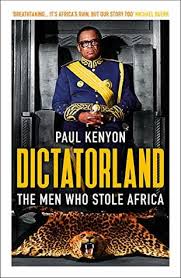 Paul Kenyon.
Paul Kenyon.
The dictator who grew so rich on his country’s cocoa crop that he built a 35-story-high basilica in the jungles of the Ivory Coast. The austere, incorruptible leader who has shut Eritrea off from the world in a permanent state of war and conscripted every adult into the armed forces. In Equatorial Guinea, the paranoid despot who thought Hitler was the savior of Africa and waged a campaign of terror against his own people. Behind these stories of violence and excess lie the dark secrets of Western greed and complicity, the insatiable taste for chocolate, oil, diamonds and gold that have encouraged dictators to rule with an iron hand, siphoning off their share of the action into mansions in Paris and banks in Zurich and keeping their people in dire poverty.
Kenya Shows The Rest of Africa How to Run A Clean Government
Nairobi- A Kenyan governor accused of corruption was ordered to step down during his trial, a minister and his deputy were arraigned in court for alleged abuse of office. Kenyans are not used to such things.
The landmark ruling by a Kenyan judge that Kiambu County Governor Ferdinand Waititu must step aside during his trial is widely seen by governance experts as a victory in the fight against corruption in Kenya. The ruling could set the stage for other corruption cases in a country where powerful politicians and government officials accused of graft generally continue to occupy office.
"It's a precedent in the Kenyan legal system because for the first time, the court spelled out the actions to be taken against a senior official who is facing criminal charges in court," Peter Wendo, a political analyst and project adviser with the Rule of Law Program for sub-Saharan Africa at the Konrad Adenauer Foundation in Nairobi, told DW.
In the past, such people were taken to court but then "the matter just ends without any convictions," Wendo said. That's because the suspects still had access to their offices which meant they could easily influence the witnesses and interfere with the investigations. According to the Ethics and Anti-Corruption Commission, Waititu is being accused of irregularly awarding tenders worth 588 million Kshs (5 million euros, $5.6 million ), to companies associated with the governor or members of his immediate family. He has denied any wrongdoing and argues that he can account for every cent.
Corruption has not spared some Kenyan school playgrounds which were sold in shady deals.
Waititu's case is taking place after the East African nation made headlines when police arrested and charged the country's Finance Minister, Henry Rotich and his deputy Kamau Thugge. The two high-profile government officials are accused of conspiring to defraud the public, financial misconduct and failing to adhere to guidelines in procurement procedures relating to the construction of two multi-million dams.
Kenyatta's critics and supporters face off
In 2015, President Uhuru Kenyatta declared corruption a ‘national security threat' and vowed to tackle the vice head on. On several occasions he declared that no one who engages in corrupt practices would be spared. Kenyatta has constantly faced widespread criticism that his administration is one of the most corrupt in the country's history. He is eager to leave behind a legacy that shows he fought corruption to the best of his ability. "The two cases [Rotich's and Waititu's] are an indication that there is light at the end of the tunnel," analyst Peter Wendo said.
Kenya's Finance Minister Henry Rotich is an ally of Deputy President William Ruto
But for Kenyatta's critics, the war against corruption is all about the 2022 succession battle. They view the president as going after politicians aligned with his deputy William Ruto. "We have so many other cases that we have been told of by the Director of Public Prosecutions," Mutahi Ngunyi, a political analyst, told DW.
One-sided fight?
One example is what has come to be known as the 'Ruaraka land saga'. In that particular case, a piece of land was allegedly bought illegally by the government. "Even though a court ruled that the piece of land was bought illegally, the people involved are nowhere near the radar in this particular war against corruption," Ngunyi said.
Ngunyi believes that Kenyatta's critics are therefore right. "If you seem to be targeting one group of people, and you are letting another group of people go scot free, then there is a contradiction in the methodology of this war against graft."
Despite the recent court cases against prominent Kenyan officials, many citizens remain skeptical about President Uhuru Kenyatta's war on corruption. Transparency International ranks Kenya 144 out of 180 nations in its Corruption Perception Index. To improve on that ranking, Kenyatta will definitely need to put in more effort. As political analyst Peter Wendo puts it: "Only successful convictions will convince Kenyans that the fight against corruption has gathered pace and has taken a turn for the better."
*Courtesy of DW Press.
** Photo of Ferdinand Waititu
Corrupt Kenyan Officials are Now Afraid to Steal Public Funds
Abdi Latif Dahir.
The governor of Kenya’s capital city has made no secret of his love for bling: He has posted photos of a golden lion statue and a gilded dining room set, and has shown up at meetings draped in gold jewelry. At rallies, he hands out cash to supporters. The governor has also been accused of drug trafficking, was recently seen slapping a journalist, and was thrown out of Kenya’s starchy Parliament for wearing ear studs and sunglasses. But he has faced little in the way of serious consequences, until now.
On Friday, the governor, Mike Mbuvi Sonko was arrested and charged with money laundering and unlawful acquisition of property for his alleged involvement in a multimillion dollar corruption scandal.
In a news conference in Nairobi, Noordin Haji, the director of public prosecutions, accused Mr. Sonko of “deploying intimidation tactics” and “using goons to threaten law enforcement officials” who were trying to investigate the case.
Mr. Sonko denied the accusations against him on Friday, calling the commission’s investigation “shallow” and saying that he had not tried to evade arrest.“I want to confidently state from the onset that I am more than ready for the lawful course that will help us know the truth,” he said in a statement on Facebook.
The arrest of Mr. Sonko comes as President Uhuru Kenyatta has vowed to crack down on corruption. Residents and international investors have long complained of corruption in Kenya, the business hub and richest economy in East Africa. Over the past year, Mr. Haji, the public prosecutor, has ordered the arrest of current and former public officials on charges such as dishing out millions of dollars for projects that only exist on paper.
The Ethics and Anti-Corruption Commission, which led the investigation into the governor, said on Twitter that Mr. Sonko had been detained while trying to escape arrest at a roadblock in Voi, about 200 miles southeast of Nairobi, and was then transferred back to Nairobi.
The commission also announced the arrest on Friday of the former Nairobi County secretary, along with the former head of procurement.Thirteen other people were also listed as suspects in the corruption case announced on Friday, and they were asked to present themselves at the nearest police station. These included members of the county’s tender evaluation committee, along with directors of several companies.
The governor is not the only nationally prominent politician recently arrested in the crackdown. In July, Finance Minister Henry Rotich was arrested on corruption charges related to a multimillion-dollar project to build two massive dams, becoming the first sitting cabinet member to be charged with financial misconduct in Kenya. Mr. Rotich has denied the charges.
But while Mr. Kenyatta has vowed to stamp out graft, critics have said that his administration isn’t serious about fighting corruption, calling it a mere public relations exercise. Efforts to tackle graft have also borne little results, according to the nongovernmental organization Transparency International.Mr. Sonko, who was elected in 2017, is serving his first term as governor. He was a member of Parliament for the Madaraka constituency in Nairobi starting in 2010, and was elected as a senator of Nairobi County in 2013.Nairobi, a city of about 3.5 million people, is both the capital of Kenya and the seat of Nairobi County. Besides being a financial hub for regional and global companies, it hosts dozens of embassies and consulates.
While Mr. Sonko has invited scrutiny for his showy lifestyle and colorful fashion, he has also drawn criticism for his management style. In November, lawmakers from Nairobi County said a “tragedy of untold proportions” was unfolding in the city, with poor public services and unpaid workers and suppliers. The leaders also criticized the governor for failing to appoint a new deputy after the previous one resigned in January 2018.
Mr. Sonko, who has taken to publicly sneering at his perceived detractors and critics, insists that he inherited an already dysfunctional city and that he would only pay legitimate suppliers upon verification of services offered.
As senator and now governor, Mr. Sonko has ingratiated himself with the public, and especially the city’s poor, by doling out cash at rallies and paying the school fees for needy students. He also established the Sonko Rescue Team, a group of youngsters who respond to emergencies, sweep streets and take clean water to poor areas.
On Thursday, the day before his arrest, Mr. Sonko received an award sponsored by the Kenya Red Cross and United Nations Volunteers for encouraging volunteering.
*Photo of Governor of Nairobi, Mike Sonko.
Economic Policy and Human Rights
 Radhika Balakrishnan and Diane Elson.
Radhika Balakrishnan and Diane Elson.
Economic Policy and Human Rights presents a powerful critique of three decades of neoliberal economic policies, assessed from the perspective of human rights norms. In doing so, it brings together two areas of thought and action that have hitherto been separate: progressive economics concerned with promoting economic justice and human development; and human rights analysis and advocacy.
Focussing on in-depth comparative case studies of the USA and Mexico and looking at issues such as public expenditure, taxation and international trade, the book shows that heterodox economic analysis benefits greatly from a deeper understanding of a human rights framework.
A vital book for anyone interested in human rights and harnessing economics to create a better world.
Economic Integration in East Africa
 By Almas Heshmati.
By Almas Heshmati.
This edited volume focuses on economic integration, currency union, and sustainable and inclusive growth in East Africa. It consists of twelve interrelated studies that provide a comprehensive picture of the state and determinants of economic development and cooperation among countries in East Africa, such as Burundi, Ethiopia, Kenya, Rwanda and Tanzania. The contributions are grouped into five parts: economic integration and its effects on trade; common currency and exchange rate; research, innovation, and knowledge, and shadow economics and corruption; inclusive and sustainable growth; and the conflict-growth nexus and reconstruction. This book will appeal to scholars and decision-makers looking for the necessary tools and determinants of economic development and cooperation in East Africa.
The Dragon's Gift: The Real Story of China in Africa
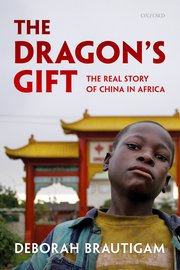 Deborah Brautigam.
Deborah Brautigam.
Highly topical.
Draws on completely new research in China and Africa to provide the first comprehensive account of Chinese engagement in Africa.
Set against the context of China’s own development and importance on the world stage.
